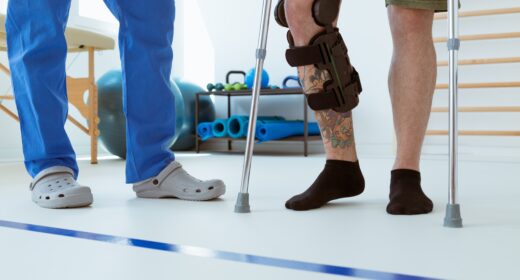People impacted by the recent OC Transpo crash may be wondering whether they are obligated to join the class action. The short answer is: you do not need to make a claim through the class action.

You can advance your own claim or go with the class action; picking one is necessary. The bigger question is: should you join a class action? Put another way: what is best for you?
Class actions typically are beneficial when liability may be an issue and there is risk the plaintiffs’ claims will be dismissed. Often the defendant is a large corporation or government entity, and they have significantly greater resources for the legal battle than each individual plaintiff. Those dynamics will make bringing a claim very risky for each individual. By grouping together they can level the playing field. The larger the number of claimants, the larger the economies of scale.
However, those dynamics are not present in this case. There is very little risk for the victims – they were all innocent passengers and bystanders when the crash occurred. The sole vehicle was as OC Transpo bus, driven by an OC Transpo driver, while driving on the OC Transpo Transitway. Liability seems pretty clear. And while there are many victims in this case, the numbers will not give rise to the economies of scale typically seen with class actions.
This was a vehicular crash and therefore is governed by the automobile accident insurance scheme in Ontario. We wish it were otherwise but the auto insurance scheme in our province is extremely complicated and a veritable minefield. We have a blend of no-fault and fault-based recovery for damages in auto cases. That means victims will look to their own auto insurer for no-fault benefits and to the City for their at-fault damages. Each person’s damages will have to be individually calculated and will depend very much on their own particular circumstances. Given that the real issue in these cases will be each victim’s damages, there will be little or no economies of scale if each person’s damages must be individually calculated. And if a class action proceeds in a manner that does not see each victim’s damages assessed individually, then that is too much of a compromise on their part.
There are other compromises with class actions. If you advance your own claim, you can move at the pace which is best for your claim. You can decide when and on what terms you settle. Or if you feel it is appropriate, you can decide to go to trial. With a class action you give up all of this autonomy.
Furthermore in order for a class action to proceed, the court needs to certify that this is the most appropriate and efficient method to resolve the claims . Given the complexity of the individual damage claims and the manageable number of claimants, there is a very good chance the court will conclude that a class action is not the proper method to deal with the claims arising out of this crash. People who choose to go the class action route will get caught up in that battle and their recovery will be delayed. And if the court refuses to certify, then any victim going that route will have to start back at square one.
Looking back to the Via Rail train and OC Transpo bus collision in 2013, there was no class action in that case and there was an even larger number of victims. Each plaintiff brought their own claim and it has worked well for them.
In conclusion, no claimant is obliged to join a class action. Victims are better served finding their own personal lawyer to advance their claims. They will have more control over the process, ensuring their claims are assessed individually. Take care of your interests, understand your options.


